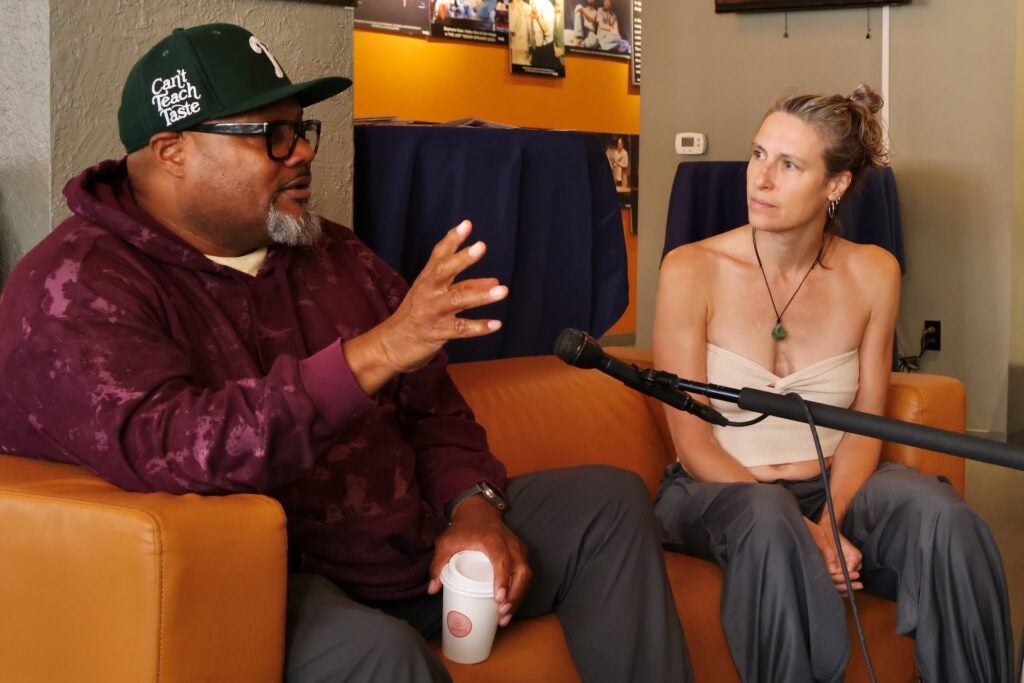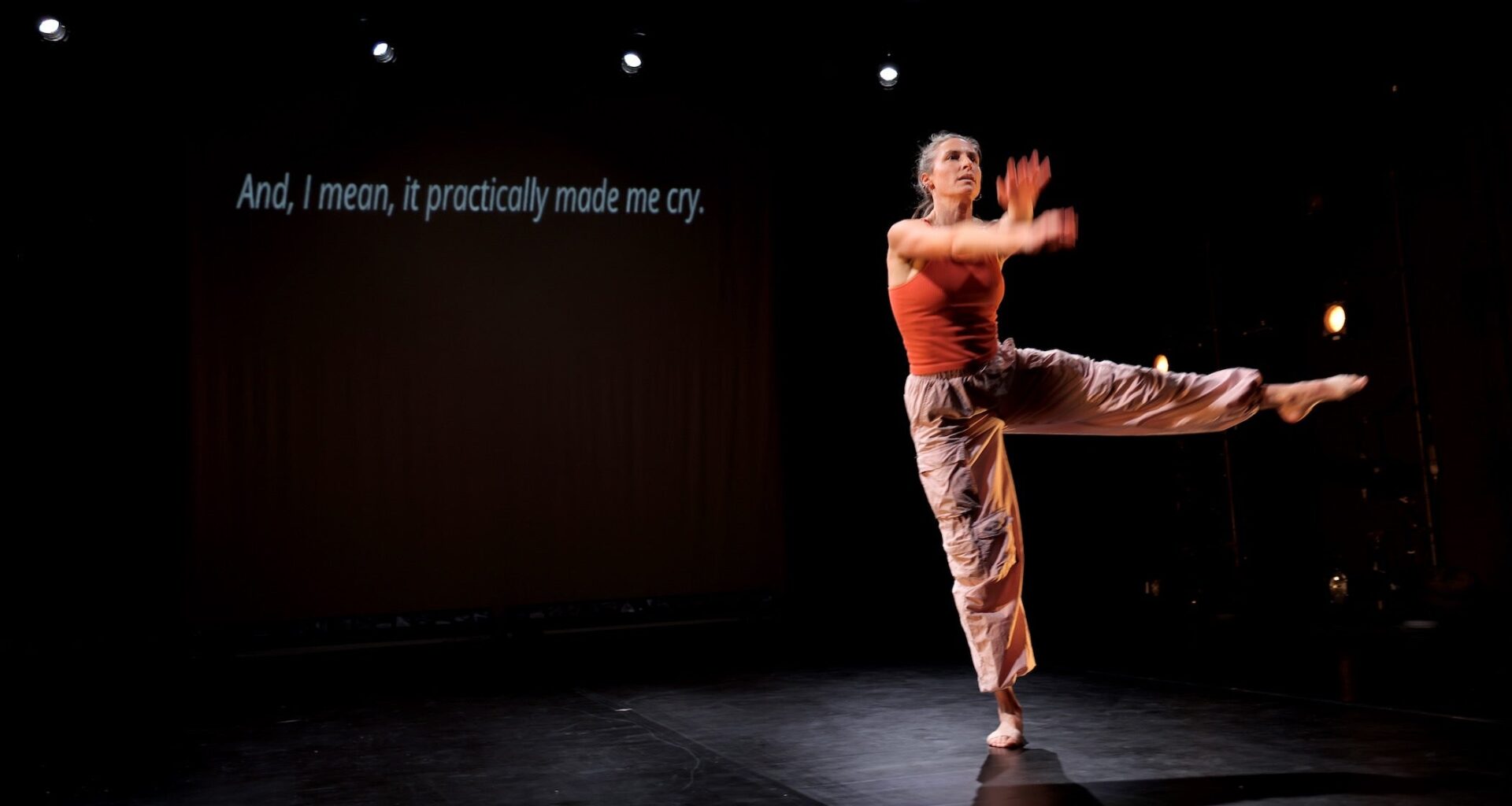Back in the 1990s, Harris’s provocative work was known to antagonize audiences. He recalls massive walkouts during his performances, and even police being called.
“I love making people uncomfortable,” said Harris.
While still provocative, he says he has somewhat mellowed over time.
“One of the things that was on my mind originally was how to do this without scaring people,” he said. “Hip-hop is the carrot. Everyone’s interested, and now they’re stuck in their seats. You’re going to see some flipping and some of what you think is hip-hop, but I’m also going to throw something in there that’s going to make you feel uncomfortable.”
Since that original dance in 2000, Bridge has built her artistic practice as a choreographer, teacher, writer and founder of Fidget, a space in Kensington for experimental performance. She has also become a mother of two.
“I don’t know if I really understood misogyny and racism when I was 19 years old,” she said. “Our culture is talking about these things a lot more readily. As a 46-year-old woman, I’ve experienced these things in my life in ways that I had never seen when I was a teenager.”
The first thing Bridge and Harris did when they started working together again was perform the original seven-minute “Human Lies” and see how it fit 25 years later.
“To see what resonated in her body, and what didn’t,” Harris said. “What changed. Over time, it’s like, ‘Oh, this is what I thought.’”
 Choreographer Rennie Harris and dancer Megan Bridge teamed up to create ”Beautiful Human Lies: Chapter 4” for the 2025 Fringe Festival in Philadelphia (Emma Lee/WHYY)
Choreographer Rennie Harris and dancer Megan Bridge teamed up to create ”Beautiful Human Lies: Chapter 4” for the 2025 Fringe Festival in Philadelphia (Emma Lee/WHYY)
For Bridge, putting her 46-year-old body through the paces of her former 19-year-old self was “really satisfying.”
“I am a far better dancer than I was 25 years ago,” she said. “There is an understanding in the dance world that we are at the peak of our career and our physicality when we’re in our 20s. In real time, I have learned that that’s not at all the case. Maybe certain things like joint health was different 25 years ago, but I’m far stronger. I’m more flexible. I have a lot more body awareness. I have a lot better stamina.”
For Harris, returning to “Beautiful Human Lies” allowed him to inject it with some of the self-awareness he has developed over the decades. His explorations of racism and injustice through dance have turned internal.
“We’re addressing these things from the external point of view, like: ‘I wish those people would get it together, or the Great Pumpkin in the pumpkin patch, why did we put this person here?’” he said, referring to President Donald Trump.
“There’s no sense of self-reflection,” he said. “I lose my temper quickly. I get jealous. I’m emotional. I take things personal. I’m insecure. If we work on those things, then those things would then radiate out to the people around, will attract those same people, then so on and so on. Thus creating better humans.”
“Beautiful Human Lies: Chapter 4” will be performed at the Drake Theatre, 302 S. Hicks Street, in Center City, September 6 – 8. Preceding the performance on Saturday, September 6, will be a discussion between Rennie Harris and dance writer Brenda Dixon Gottschild.
